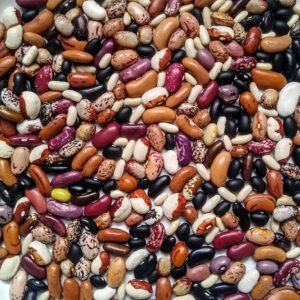
Frank Morton, farmer, seed breeder, grower for Wild Garden Seed, and OSA board member, was interviewed on the Food Sleuth radio program last week. You can listen via the podcast below.
Morton does an excellent job outlining differences between the conventional and organic seed industry by using sugar beet producers as an example. He explains the contractual relationship between conventional sugar beet producers and sugar beet processors (the handful in control) as a top down relationship, saying these growers have little choice in the seed they grow and that right now transgenic seed is essentially their only option. On the other hand, Morton’s independent seed company’s breeding program focuses on 30 different species that results in 130+ varieties. And he has various outlets to sell his seed, since more than a dozen companies currently carry his seed.
Morton also breaks down the failed promises of transgenic crops and the consequences of their commercial production, including: herbicide-tolerant weeds that lead to even higher rates of chemical applications; shifts in soil microbiology that set the stage for worse disease problems; and cross-pollination between organic and transgenic crops. Perhaps no one is better suited to speak to the challenge of contamination than Morton, a plaintiff in the GE sugar beet lawsuit.
When the host asks, “Can we go back?” Morton laughs but responds confidently: “Yes, we can go back. The industry talks about the money lost by going back.” He says we often talk about GE technology as if it’s a one-way street we’re headed down. “But we’ve gotten along for 10,000 years without biotech just fine,” he says, “We can go back.”
At the end of his interview, Morton lays out well the domino effect of the GE seed technology model:
“I would like to say that GE technology is a flawed model of sustainability. It takes enormous up front costs that require investment of shareholders. The technology also requires the application of intellectual property protections to satisfy those shareholders. This has led to issues of science research being compromised because so much money stands to be lost if the science shows the technology doesn’t deliver what it says it delivers. Scientists have talked about how their research is hampered and that they can’t conduct independent research.”
Morton articulates the various concerns around GE crops better than most. Listen for yourself.
